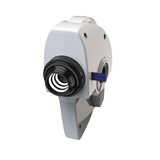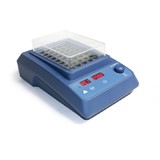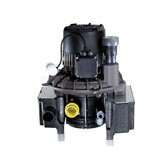This distinction has important implications for the way people manage their coughs.
The latest Bisolvon Cough survey also found that all respondents thought correct cough etiquette was an extremely or very important public health issue, yet only one in two respondents were aware of the best practices for covering their cough and only 11 per cent follow the recommended action of coughing into their elbow1.
The results have been released in the run up to winter as part of the "I hate people coughing on my head!" social media campaign. Australia's 'Fully Sick Rapper', who became an overnight social media phenomenon after creating comedic raps whilst locked in quarantine, has developed a rap song to help educate people about cough etiquette and how to differentiate your cough (http://www.youtube.com/watch?v=_UJQR6E56N4).
Pharmacist and Pharmaceutical Society of Australia (PSA) Principal Advisor John Bell supports the campaign and says many people don't realise the importance of being able to identify what type of cough they are suffering from.
"Being able to recognise what type of cough you have can make all the difference to the way you treat it. It's very simple - if you don't know your cough type, whether it is chesty or dry, then there's a chance you might treat it incorrectly and allow your cough to get worse," said Bell.
"For a chesty cough, where there is a build up of mucus in your chest - it is recommended that you use a mucolytic treatment. This will help break down the mucus in your chest and make it easier for you to cough up. For a dry, tickly cough - it is recommended that you use a cough suppressant which will help stop the urge to cough.
"The use of combination products containing both cough suppressants and expectorants should be avoided. For example a suppressant should never be used for a chesty cough as it will prevent your body from getting rid of the build up of sticky mucus and will delay recovery."
According to the research, 85 per cent of the respondents would continue to go to work or socialise if they had a bad cough and 45 per cent of families would continue to send their child to school with a serious cough.
Bell says many people are unaware of how easily germs can spread in the winter months, especially on trains, buses and other crowded areas.
"Cough etiquette is a significant and worrying public health issue. It is alarming to see that most people don't know best practices for covering their coughs. Health authorities recommend that people should cough into their sleeve or into a tissue, which is then promptly discarded. Don't cough into your hands - it will only spread germs."
Research also shows that 59 per cent of people surveyed thought the sound of someone clearing mucus from their chest was extremely unpleasant, this was 22 per cent higher than the number of people who found someone belching very unpleasant.
The social media campaign, which helps to educate people on how to identify, manage and treat their cough, will run from May to September 2011. The "I hate people coughing on my head!" Facebook page and the Bisolvon website (www.bisolvon.com.au) will provide helpful hints, guest articles, competition, polls, tips and facts to help people manage their cough and adhere to correct cough etiquette.






